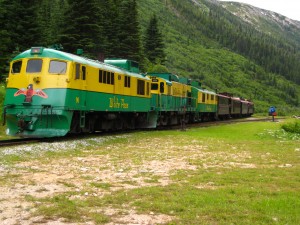CAPACITY AND RELIABILITY – THE AIRLINES
One of the oldest lines goes something like “predictions are often wrong, especially if they are about the future”. I thought about this line recently when I had an American Airlines flight from Washington DC to Chicago on a Sunday afternoon. We had just arrived at the airport when the gate agent just said that there was bad weather at O’Hare and they canceled all flights into Chicago.
In a past life as a consultant I flew literally hundreds of times and I know a bit about airports and airlines. In past eras, the airline would have continually postponed the flight, helped you with alternatives, and bravely kept chugging along, trying to get you to your destination. Nowadays, with current fuel prices and most airlines on the brink of bankruptcy, the equation has changed; the airline that you select is basically on price or your Frequent Flyer mile affiliation, and the airlines are returning the favor – they are cutting flights, packing flights full to the brim, and basically stripping all the excess capacity out of the system.
The more subtle outcome of this is that airlines have become a significantly less reliable way of getting you from place A to place B. Cruises are now telling passengers that they ought to arrive the day before the cruise; it is too risky to fly out the morning of your cruise because so many flights are delayed that you might miss your departure. When I go on vacations, I often leave a day in front and a day in back just for these sorts of situations; a significant percentage of my recent trips were like the one to Washington DC when an extra day (or 8+ hours late at arrival) was inadvertently tacked on to my return.
The airline is basically substituting my personal time (which has a cost, especially if it is a day of work lost or vacation day) and my stress level (it is stressful not knowing whether you are going to get home that day to meet commitments or arrive at the start of your trip) for their financial survival. Flying on a plane nowadays is significantly more of a crap-shoot in terms of reliability and cancellation than it was in the past, and just try to fly stand-by if your flight is canceled when all of the subsequent fights are packed to the gills – that is even more stressful.
The parallels between airlines and electric power are actually very great, although this seems odd at first. For many years the airlines were focused on reliability and services beyond just the lowest price; they didn’t fill every flight to the absolute brim and they had spare planes available in case of weather emergencies or mechanical issues. This extra level of investment helped service in many subtle ways, but cost money – money tied up in airplanes that weren’t flying, ground crew to help with your experience, and in space in their schedule to re-jigger flights if needed.
Airlines and power have another subtle similarity – they are both services dependent upon time. The price of power famously varies depending on the time of day and weather conditions; this is due to the fact that you don’t want power “as a service” when it is best for the power company, you want it when it is best for YOU. If it is a hot day, you want air conditioning at noon. If you are running a company, you want power while the machines are running. The airlines aren’t just offering to fly me from A to B at a price; they are also balancing my time into the equation. If I have a funeral to attend, I want reliability, not price. If I have to make a critical overseas connection, I need to be in the right airport at the right time. While the airlines are competing on price, they are dropping so much capacity from the system (spare machines, spare people, room in schedule) that they are trading off between the two in a way that is significant and growing.
Read more
